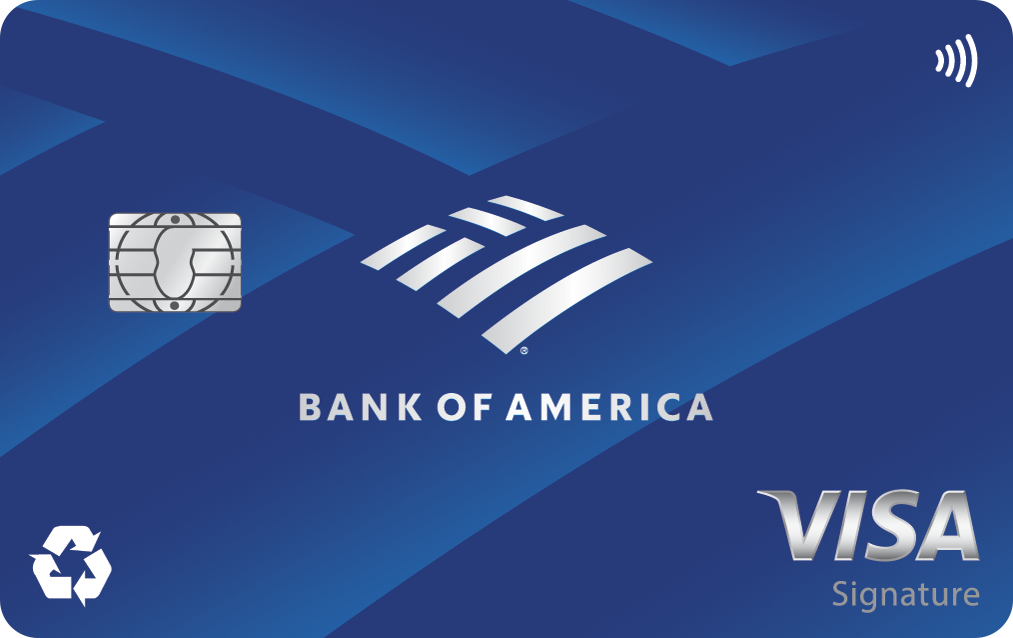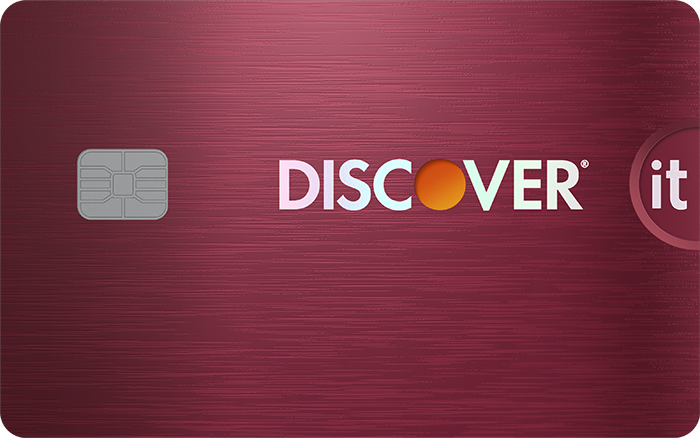Dive deeper into our top credit card picks
Credit card comparison
We recommend comparing options to ensure the card you're selecting is the best fit for you. To make your search easier, here's a short list of standout credit cards.
| Offer | Our Rating | Welcome Offer | Rewards Program | APR | Learn More |
|---|---|---|---|---|---|
|
5.00/5
Our ratings are based on a 5 star scale.
5 stars equals Best.
4 stars equals Excellent.
3 stars equals Good.
2 stars equals Fair.
1 star equals Poor.
We want your money to work harder for you. Which is why our ratings are biased toward offers that deliver versatility while cutting out-of-pocket costs.
|
Discover will match all the cash back you’ve earned at the end of your first year. INTRO OFFER: Unlimited Cashback Match for all new cardmembers. Discover will automatically match all the cash back you’ve earned at the end of your first year! There’s no minimum spending or maximum rewards. You could turn $150 cash back into $300. | 1% - 5% Cashback Earn 5% cash back on everyday purchases at different places you shop each quarter like grocery stores, restaurants, gas stations, and more, up to the quarterly maximum when you activate. Plus, earn unlimited 1% cash back on all other purchases. |
Intro: Purchases: 0%, 15 months Balance Transfers: 0%, 15 months Regular: 17.49% - 26.49% Variable APR |
||
|
5.00/5
Our ratings are based on a 5 star scale.
5 stars equals Best.
4 stars equals Excellent.
3 stars equals Good.
2 stars equals Fair.
1 star equals Poor.
We want your money to work harder for you. Which is why our ratings are biased toward offers that deliver versatility while cutting out-of-pocket costs.
|
N/A | N/A |
Intro: 0% intro APR for 21 months from account opening on purchases and qualifying balance transfers Purchases: 0% intro APR for 21 months from account opening on purchases Balance Transfers: 0% intro APR for 21 months from account opening on qualifying balance transfers Regular: 17.49%, 23.99%, or 28.24% Variable APR |
||

Apply Now for Bank of America® Travel Rewards credit card
On Bank of America's Secure Website. |
4.70/5
Our ratings are based on a 5 star scale.
5 stars equals Best.
4 stars equals Excellent.
3 stars equals Good.
2 stars equals Fair.
1 star equals Poor.
We want your money to work harder for you. Which is why our ratings are biased toward offers that deliver versatility while cutting out-of-pocket costs.
|
25,000 points (worth $250) 25,000 online bonus points after you make at least $1,000 in purchases in the first 90 days of account opening - that can be a $250 statement credit toward travel purchases | 1.5-3 points per dollar Earn unlimited 1.5 points per $1 spent on all purchases, with no annual fee and no foreign transaction fees, and your points don't expire as long as your account remains open. Earn 3 points per $1 spent on travel purchases booked through the Bank of America Travel Center. |
Intro: 0% Intro APR for 15 billing cycles for purchases, and for any balance transfers made in the first 60 days. After the Intro APR offer ends, a Variable APR that’s currently 17.49% - 27.49% will apply. A 3% Intro balance transfer fee will apply for the first 60 days your account is open. After the Intro balance transfer fee offer ends, the fee for future balance transfers is 4%. Balance transfers may not be used to pay any account provided by Bank of America. Purchases: 0% Intro APR for 15 billing cycles for purchases Balance Transfers: 0% Intro APR for 15 billing cycles for any balance transfers made in the first 60 days Regular: 17.49% - 27.49% (Variable) |
Apply Now for Bank of America® Travel Rewards credit card
On Bank of America's Secure Website. |
At Motley Fool Money, every credit card we review is rated on a 5-star scale, scored to a tenth of a point. Our ratings weigh the features that matter most: rewards rates, 0% intro APR offers, welcome bonuses, fees, and perks like travel credits and purchase protections.
We score cards within four primary categories:
- 0% intro APR cards for paying down balances or financing purchases
- Travel cards for maximizing points, miles, and perks on the road
- Cash back and rewards cards for everyday spending value
- Business cards designed to fit company expenses and growth
Top-rated cards typically combine strong long-term value, attainable bonuses, low fees, and standout protections or perks.
We combine these factors with an evaluation of brand reputation and customer satisfaction to ensure you're getting the best credit card recommendations. Our aim is to maintain a balanced best-of list featuring top-scoring credit cards from reputable brands. 'Best for' category selections on this page are determined by our editors, and a single card may be recognized in multiple categories.
Ordering within lists is influenced by advertiser compensation, including featured placements at the top of a given list, but our product recommendations are NEVER influenced by advertisers. Learn more about how Motley Fool Money rates credit cards.
At Motley Fool Money, every credit card we review is rated on a 5-star scale, scored to a tenth of a point. Our ratings weigh the features that matter most: rewards rates, 0% intro APR offers, welcome bonuses, fees, and perks like travel credits and purchase protections.
We score cards within four primary categories:
- 0% intro APR cards for paying down balances or financing purchases
- Travel cards for maximizing points, miles, and perks on the road
- Cash back and rewards cards for everyday spending value
- Business cards designed to fit company expenses and growth
Top-rated cards typically combine strong long-term value, attainable bonuses, low fees, and standout protections or perks.
We combine these factors with an evaluation of brand reputation and customer satisfaction to ensure you're getting the best credit card recommendations. Our aim is to maintain a balanced best-of list featuring top-scoring credit cards from reputable brands. 'Best for' category selections on this page are determined by our editors, and a single card may be recognized in multiple categories.
Ordering within lists is influenced by advertiser compensation, including featured placements at the top of a given list, but our product recommendations are NEVER influenced by advertisers. Learn more about how Motley Fool Money rates credit cards.
Top credit cards by issuer
Credit card tools
Keep learning about credit cards
Recent Articles
View All ArticlesDo People With 850 Credit Scores Pay Less for Almost Everything? Here's the Truth
Here's How to Get 0% Intro APR for 21 Months With No Annual Fee
Act Fast: The Most Valuable Credit Card Bonus I've Seen This Winter
How the Chase Sapphire Preferred Card Can Pay for Its Annual Fee 8 Times Over
Don't Want to Pay the Chase Sapphire Reserve Card's $795 Fee? Here Are 3 Alternatives
Is the $895 Amex Business Platinum Worth It in 2026?
Here's What Happens When You Pay Off Your Credit Cards With a Loan
Here's What Happens When You Only Have One Credit Card
Earn Hundreds a Year on Business Trips: The Best Business Credit Cards This Week, Jan. 26, 2026
Save at the Supermarket This Year: The Best Grocery Credit Cards This Week, Jan. 26, 2026
Motley Fool Stock Disclosures
Citigroup is an advertising partner of Motley Fool Money. Wells Fargo is an advertising partner of Motley Fool Money. American Express is an advertising partner of Motley Fool Money. Ally is an advertising partner of Motley Fool Money. Charles Schwab is an advertising partner of Motley Fool Money. Bank of America is an advertising partner of Motley Fool Money. JPMorgan Chase is an advertising partner of Motley Fool Money. The Motley Fool has positions in and recommends Alphabet, Amazon, Apple, Best Buy, Costco Wholesale, JPMorgan Chase, Mastercard, Netflix, PayPal, Target, U.S. Bancorp, Uber Technologies, and Visa. The Motley Fool recommends Alaska Air Group, Capital One Financial, Charles Schwab, Hyatt Hotels, and Marriott International and recommends the following options: long January 2027 $42.50 calls on PayPal, short December 2025 $75 calls on PayPal, and short December 2025 $95 calls on Charles Schwab. The Motley Fool has a disclosure policy.












